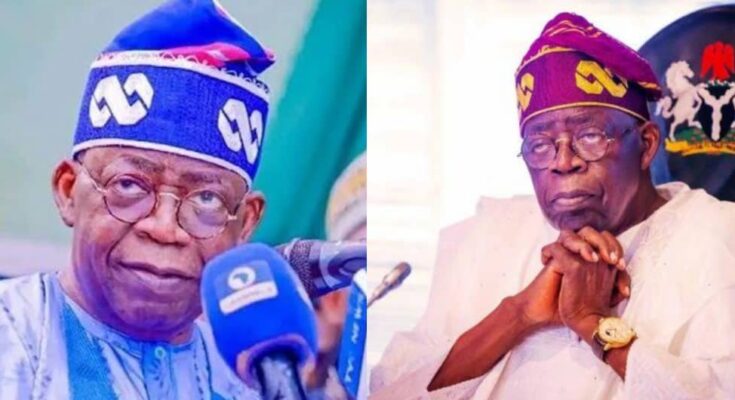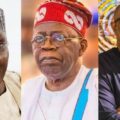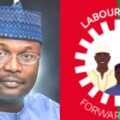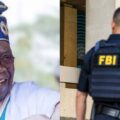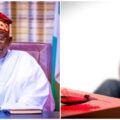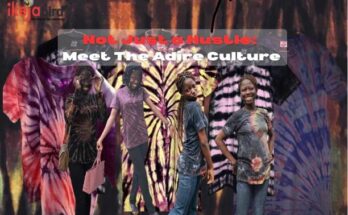Bola Tinubu’s eligibility as Nigeria’s President-elect faces serious challenges, with five critical issues potentially disqualifying him from office. The “25% rule” in the Federal Capital Territory (FCT) questions whether Tinubu secured the required vote percentage, casting doubts on his election’s legitimacy. Allegations of drug trafficking, coupled with a $460,000 forfeiture case, raise concerns about his moral and legal qualifications.
Claims of the Independent National Electoral Commission (INEC) not following its guidelines during the election, as argued by Atiku Abubakar and Peter Obi, challenge the election process’s integrity. Additionally, the dual citizenship and perjury issue, where Tinubu allegedly failed to disclose Guinean citizenship, could constitute perjury under Nigerian law. Lastly, the double nomination of Vice President-elect Kashim Shettima has raised legal concerns, with the People’s Democratic Party (PDP) challenging the validity of Tinubu and Shettima’s candidacy.
These five issues collectively form a complex legal battleground that could determine Tinubu’s eligibility for the presidency, underscoring the complexities and controversies surrounding Nigeria’s political lands
1. 25% in FCT
The 25% rule in the Federal Capital Territory (FCT) has emerged as an important issue in the challenge against Bola Tinubu’s presidential victory. A witness for the opposition, Mohammed Babaji Madaki, testified that both Tinubu and Atiku Abubakar didn’t secure the required 25% of total votes in the FCT.
This rule, based on constitutional provisions, poses a significant threat to Tinubu’s eligibility as it challenges the legitimacy of his election win. Tinubu’s defence argues that the FCT should be considered as the 37th state for electoral purposes, and thus, the 25% requirement does not apply.
This legal dispute over the FCT’s status could potentially disqualify Tinubu from the presidency and highlights the complexity of electoral regulations in Nigeria.
2. Drug Trafficking, Money Laundering, and $460,000 Forfeiture Case
Drug trafficking, a serious offense, has cast a shadow over Bola Tinubu’s eligibility for the presidency. Documents from the United States reveal his involvement in a drug trafficking ring, resulting in the forfeiture of $460,000.
While Tinubu argues that this was a civil matter and not a criminal conviction, it raises questions about his moral and legal qualifications. Nigeria has executed drug traffickers in the past, and his documented history could tarnish the nation’s image. His candidacy has already sparked controversy and legal challenges.
The Nigerian judiciary must carefully consider these allegations, as drug trafficking is one of the issues that could disqualify Tinubu from the presidency, raising concerns about his suitability for the highest office in the country.
3. INEC Not Following its Guidelines
Another key issues that could potentially disqualify Bola Tinubu from the presidential election is the allegation that the Independent National Electoral Commission (INEC) did not follow its own guidelines during the election. This claim is raised by both Atiku Abubakar and Peter Obi in their petitions challenging the election results.
According to the petitioners, the February 25 presidential election was marred by significant irregularities and non-compliance with electoral laws and INEC guidelines. They argue that INEC failed to electronically upload results immediately from polling units to the INEC Results Viewing Portal (IREV), as required by its own guidelines.
This alleged failure to adhere to its own guidelines raises questions about the integrity of the election process and casts doubt on the legitimacy of the outcome. Both Atiku and Obi are seeking the court’s intervention to either declare them the rightful winners of the election or order a fresh election.
If the court finds merit in their claims and determines that INEC did not follow its own guidelines, it could have serious implications for Tinubu’s candidacy and the election results. This issue, among others, will be closely examined as the legal battles unfold in the Nigerian Judiciary.
4. Dual Citizenship and Perjury
Dual Citizenship and Perjury are among the five critical issues that could potentially disqualify Bola Ahmed Tinubu from holding the presidency. The controversy surrounding his alleged acquisition of Guinean citizenship and his failure to disclose it in his INEC form EC9 raises questions about his eligibility.
The Nigerian Constitution, under Section 137, stipulates that a presidential candidate must be a Nigerian citizen by birth and cannot have voluntarily acquired the citizenship of another country or declared allegiance to such a country. If proven true, Tinubu’s failure to disclose his Guinean citizenship on his nomination form could constitute perjury, a serious offense punishable by up to 14 years in prison according to Nigerian laws.
While some argue that dual citizenship may not disqualify a candidate, the constitution’s clear language suggests otherwise. The ongoing legal battle and allegations of dishonesty further complicate Tinubu’s presidential aspirations. Whether the courts will consider these issues and their constitutional implications remains to be seen, but they are undeniably significant challenges to his candidacy.
5. Shettima’s Double Nomination
The issue of Vice President-elect Kashim Shettima’s alleged double nomination has emerged as the last critical factors that could potentially disqualify Asiwaju Bola Tinubu from the presidency. The People’s Democratic Party (PDP) has challenged the validity of Tinubu and Shettima’s candidacy, asserting that Shettima’s nomination both as a vice-presidential candidate and for a senatorial seat in Borno Central violates electoral laws.
While the Court of Appeal initially dismissed the PDP’s case, labeling them as lacking locus standi, the PDP has persisted in its appeal, asserting that double nomination constitutes a legal breach. The Supreme Court is set to deliver its judgment on this matter on May 26, just three days before the inauguration of the president-elect.
The outcome of this case could have significant implications for Tinubu’s eligibility as the President-elect, with the PDP seeking to nullify their election over this alleged electoral violation. Whether the Supreme Court will uphold or reject these claims remains to be seen, but it undoubtedly remains a pivotal issue in the ongoing legal battle surrounding Tinubu’s candidacy.
Conclusion
As the Presidential Election Petition Tribunal potentially prepares to deliver its verdict on September 16 in accordance with constitutional provisions that dictate a maximum of 180 days from the filing of petitions, the political landscape in Nigeria remains charged with anticipation.
The petitions challenging President Bola Tinubu’s victory, lodged by Atiku Abubakar of the People’s Democratic Party (PDP) and Peter Obi of the Labour Party, have raised various allegations that could potentially alter the course of the nation’s leadership.
The outcome of this judgment holds the potential to reshape Nigeria’s political landscape, making it an essential moment in the nation’s democratic history. As the nation waits with bated breath, the decisions of the Tribunal will undoubtedly have far-reaching consequences for Nigeria’s leadership and future.

